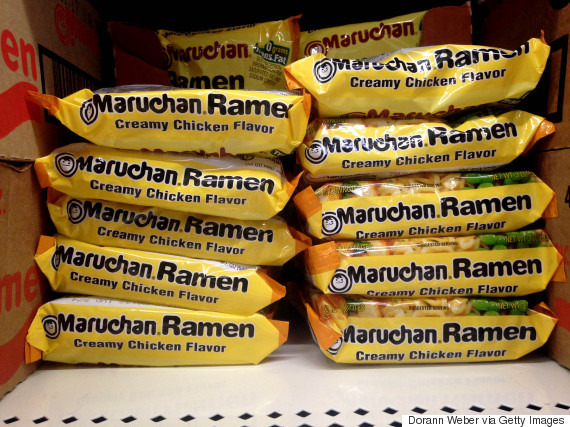Cigarettes, long the most popular currency in U.S. prisons, have been displaced by ramen, according to a new study.
Cutbacks in food services have led the value of the cheap, long-lasting packets of noodles to skyrocket, according to research from Michael Gibson-Light, a doctoral candidate at the University of Arizona.
Gibson-Light spent a year investigating the lives of inmates at an unidentified U.S. prison, and interviewed nearly 60 prisoners and staff members, according to a press release from the American Sociological Association.
He said reports of a decline in the quality and quantity of the food were consistent among inmates and staff.
"Prisoners are so unhappy with the quality and quantity of prison food that they receive that they have begun relying on ramen noodles — a cheap, durable food product — as a form of money in the underground economy," he said.
"Because it is cheap, tasty, and rich in calories, ramen has become so valuable that it is used to exchange for other goods."
Stacked packages of dried ramen creamy chicken noodles. (Photo: Dorann Weber via Getty Images)
He found that the noodles were used to trade for clothes, cigarettes, fresh vegetables, or even services like bunk cleaning, according to the Guardian, which obtained a copy of the study.
Inmates buy items on credit at illegal stores, and one prisoner quoted said that he'd seen fights over ramen when debts aren't paid back.
“People get killed over soup.”
While Gibson-Light's research focused on one institution, he looked at similar investigations he said also discovered a spike in the popularity of ramen as currency.
"That's everybody's staple in prison: No matter who you are, you're cooking with ramen."
The instant noodle is so popular that one U.S. ex-con co-authored a cookbook of ramen recipes inspired by his time behind bars.
"That's everybody's staple in prison: No matter who you are, you're cooking with ramen,"
Gustavo "Goose" Alvarez told NPR's "Here and Now" last year.
Complaints about food in private prisons
The Obama administration revealed last week that it would work to end the use of private prisons after concluding they don't provide the same level of services or security as government-run facilities, according to the Washington Post.
A Department of Justice review found private institutions saw nearly twice as many inmate complaints about food over four years as compared to government-run ones.
A May 2012 riot at the Adams County Correctional Center, a private prison in Mississippi, left one correctional officer dead and 20 people hurt, according to the review. Low-quality food was cited in media reports as a reason by the roughly 250 inmates involved.
Gibson-Light told The Guardian the shift from cigarettes to instant noodles illustrates the extent of the food crisis in American prisons, which he sees as a result of a practice called "punitive frugality."
“[Money] doesn’t change unless there’s some drastic change to the value in people using it," he said.






 Reply With Quote
Reply With Quote